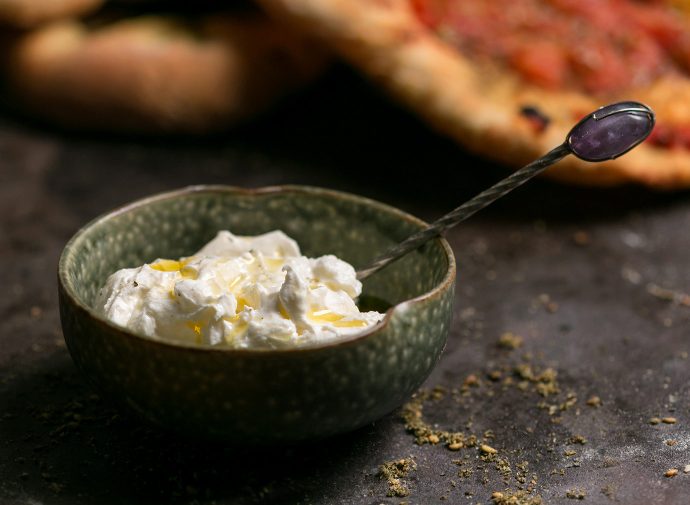Labneh is a soft cheese made from strained yogurt, a process that concentrates yogurt’s characteristic tang. The longer you strain off the whey, the thicker the labneh will be. You can buy it in ethnic food stores and specialty gourmet shops, especially those that cater to a Mediterranean population, but it’s actually quite easy to make at home.
Spread on warm bread or served in a shallow bowl, drizzled with olive oil and sprinkled with sumac, labneh makes a great addition to a mezze table. You can also drain it until very thick, form it into 1-ounce balls and marinate these cheeses with fragrant oil, za’atar and branches of thyme or rosemary.
Of course, pivotal to a good labneh is beginning with a high-quality yogurt. Middle Eastern, South Asian and Mediterranean families often make theirs at home, and the cultures are preserved from one batch to the next for generations. Gazette photographer Zak Yasin’s family is originally from Bangladesh. There was recently a terrible fire in his building in Chicago. With only moments to leave the apartment, one of the few things he grabbed was his yogurt, preserving the culture at all costs.
The culture for my yogurt comes from my friend Toula Kourliouros, who has kept it going in her Chicago apartment for years. Here are her instructions for making labneh.
Step one: Bring a gallon of whole milk to the boiling point (212°F), stirring occasionally to keep it from sticking and burning on the bottom.
Step two: Put the pot in a cold water-bath until the temperature drops to 115°F. Stir in ½ cup yogurt from the previous batch. If you are just starting your first batch, you can use 2 tablespoons of commercial yogurt, but according to Toula, make sure it’s Greek, cultured with live enzymes.
Step three: Put the pot in warm spot. Toula uses her oven, with the pilot light on, to mature and thicken the yogurt overnight.
Step four: To make labneh, she puts the yogurt in a clean pillowcase (you can also use a strainer lined with cheesecloth), suspended over her sink, to drain for another 12 to 24 hours.

